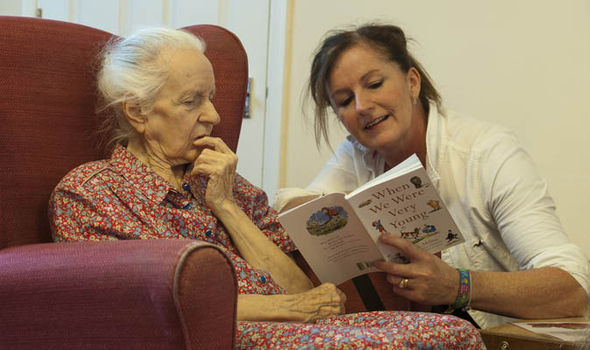How early brain screening could hold the key to halting dementia

DEMENTIA screening could become routine “within years” after a major breakthrough by British scientists.
Researchers say they are close to finding a therapy to treat the brain illness before it takes hold.
So by testing for the condition, doctors can strike early.
Scans could become as common as cancer screening programmes, scientists believe.
New brain checks have identified a 10-15 year period in which people exhibit changes associated with Alzheimer’s but still manage to function normally.
Experts believe the window of opportunity could provide time for testing and treatment that delays onset of the disease.
Research has concentrated on sufferers in late stage Alzheimer’s but cutting edge imaging – positron emission tomography (PET) scanning – identifies amyloid, a hallmark of the disease, early.
Nick Fox, a professor at the Institute of Neurology, University College, London, said: “If we had a disease modifying therapy that truly slowed, delayed, prevented or cured, not just had a minor effect, then the cost of screening would be trivial. If there is a 10-15 period of accumulation, that’s a 10-15 year period when you could intervene and slow the trajectory.”
Estimates suggest that by 2025 there will be a million people in the UK with Alzheimer’s, which slowly robs people of their memory.
The idea of a screening programme comes as early results of clinical trials provide fresh optimism the incurable illness could finally be managed.
There have been claims of miracle improvements in patients taking the drugs Aducanumab, Solanezumab and Crenezumab which reduce the build-up of sticky clumps of amyloid.
Alzheimer’s, a disease known as the “long goodbye”, typically starts with forgetfulness and can progress to complete loss of independence while in some cases people spend their last years bed bound and mute.
The indiscriminate nature of dementia means it is now more feared than cancer in those aged over 45.
Prof Fox, who cochairs Alzheimer’s Society’s Research Advisory Committee, said: “I expect to see a disease modifying therapy in the next 5-10 years. I can absolutely see a time when people are screened for dementia. Is there any reason to do that now? Absolutely not.
“With screening programmes we need to be clear the benefit outweighs the anxiety.”
Dr Simon Ridley, of Alzheimer’s Research UK, said: “It is important that progress is translated into effective treatments that can improve the lives of people living with dementia as soon as possible. There are drugs in clinical trials at the moment, and we hope that these will prove effective.”
Политика конфиденциальности | Правила пользования сайтом










